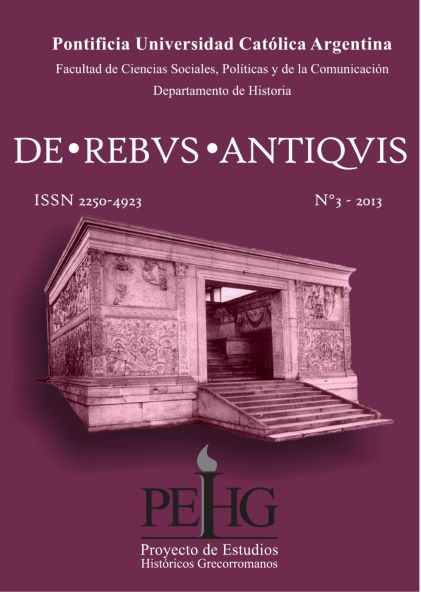Between res publica and ecclesia: poverty in the imperial laws of Late Roman times
Keywords:
paupertas, Roman law, Codex TheodosianusAbstract
This paper carries out a casuistic analysis of the references to pauper and paupertas made in the laws compiled in book 16 of Codex Theodosianus, dealing entirely with religious matters. The figure of the poor person is at the core of Christian discourse in the fourth and fifth centuries, with the predominant and limiting meaning of beggar or poor person who is only helped by the church. The imperial chancery, however, did not take on Christian terminology on poverty nor reflect the social significance of charity and alms in legal regulations from Constantine onwards. References to pauperes in laws are scarce, almost always secondary, and do not contain an univocal notion of the poor: along with those assisted by the church, there also appear those who are not seen as fitting by the curia, the poor in general, those with a servile status, the false poor or those who became poor after punishment. Moral principles did not inspire legislation regarding pauperes. As legislators, Christian emperors did not impose or ensure compliance with Christian ethics on poverty. From Constantine onwards, the law did not set forth charitable assistance to the poor nor linked the granting of privileges to the clergy to the charitable role of the church, except in the case of chrysargyrum. Between the interests of the res publica and those of the ecclesia, emperors always opted for the former while taxation always overruled charity amongst their concerns.
Downloads
Published
How to Cite
Issue
Section
License










